April 27th, 2010 5:05 am by Vincent Flanders
I hate forms. In fact, if I’m not mistaken, WPTS is a form-free zone. However, they’re insanely important for most sites and here’s “Best Practices in Form Design,” a free, downloadable, 133-page PDF (4.37Mb) from the guy who wrote the book on forms.
Download the PDF
Posted in Not a Daily Sucker, Twitter, Usability, Web Design, You Should Read |
April 20th, 2010 3:03 am by Vincent Flanders
Today, April 20 — which is Hitler’s birthday — seems like a good time to talk about a disturbing trend in web design.
Read the article
Posted in Daily Sucker, Usability, Web Design |
April 16th, 2010 1:01 pm by Vincent Flanders
An old high school buddy, Terry Schill, came up with a brilliant take about recent Twitter events: “Not bragging, but all of my Tweets are going into the Library of Congress….who would have known?”
Definitely NOT The Daily Sucker.
The best part of the Twitter deal is that everyone can now legitimately tell people, “I’m an author. My works are in the Library of Congress.”
Posted in Not a Daily Sucker, Twitter |
April 9th, 2010 5:05 pm by Vincent Flanders
As I said in a previous post Google is using your site’s speed in its web search rankings — kind of. It’s only partially implemented and only for English queries — right now. Search Engine Land has an excellent non-Google take on the matter.
OK, you’ve found out your site’s loading speed sucks, what do you do?
There are lots of things you can do to speed up your web site. I think the three steps you can take that will improve your site’s performance more quickly (and perhaps have the greatest impact on your site’s speed) are:
- Remove as many f*cking third-party widgets as your boss will let you. Steve Souders’ Performance of 3rd Party Content article states:”Ads, widgets, and analytics are a major cause for slow web sites. P3PC is a project focused on analyzing the performance of 3rd party content. The goal is to find the key wins to evangelize to make 3rd party content faster.”The two worst offenders on his 6-item list are: the Digg widget ad Google’s AdSense. Obviously, Google won’t downgrade you for using AdSense.
His list is far from complete (he’s just starting) and I’ve personally found that the Snap widget, Techmeme widget, Twitter Flash widget, and the Amazon widget that display books are all bandwidth hogs.
- Cache your files— Add an Expires or a Cache-Control Header. Yahoo! covers the topic. Information on how to do it is difficult to find and implement. Most articles assume you are a professional system administrator with root access.Here are some articles that I’ve found useful for normal people:
Sample Apache cache configuration
Caching Tutorial
Speed up your site with Caching and cache-control
- Compress your web page components. As Yslow states:”Compression reduces response times by reducing the size of the HTTP response. Gzip is the most popular and effective compression method currently available and generally reduces the response size by about 70%. Approximately 90% of today’s Internet traffic travels through browsers that claim to support gzip.”Here are articles that I’ve found useful for normal people:
Use mod_deflate to Compress Web Content delivered by Apache
Adding GZIP Compression To Your Site Via .htaccess
Redbot is an important tool to help you see details about your site. Here’s what you see when you visit my articles page and here’s what you see when you click check your assets (really important).
I also find Zoompf’s blog very useful and, of course, Steve Souders’ High Performance Web Sites.
Posted in Daily Sucker |
April 9th, 2010 4:04 pm by Vincent Flanders
Yes, it’s finally happened. Google is using your site’s page loading speed in its web search rankings — kind of. It’s only partially implemented and only for English queries — right now. Search Engine Land has an excellent non-Google take on the matter.
The Google article lists various tools to help you evaluate your site’s speed. Page Speed and Yslow are two addons for the Firebug plugin for Firefox. These tools are extremely valuable because they analyze “web pages and suggests ways to improve their performance.” Performance is this year’s black.
Crappy looking sites. In my view, the problem with rewarding web speed is that lots of sites that are the worst sites and worst looking sites on the Internet might see an improvement in search results because they load faster.
Yes, I know that Page Load Time is a minor, minor factor. Still, it seems bizarre that crappy looking sites will get any kind of bonus for loading faster.
Sites That Suck – Ranked by Page Speed Score
Not crappy looking sites. The following is a list of some well-known sites:
Content Rich Sites – Ranked by Page Speed Score
Jeez. The New York Times scores lower than the turd pile called Yvette’s. Yes, I know content is rewarded.
Irony. I measured the page load speed of three companies who provide performance tuning. Very interesting results.
Three companies that perform Web Site Performance Tuning:
| Domain |
Page Speed Score |
Yslow Score |
| |
|
|
| Company 1 Home Page |
91 |
86 (B) |
| Company 2 Home Page |
73 |
65 (D) |
| Company 3 Home Page |
88 |
77 (C) |
Posted in Daily Sucker |

